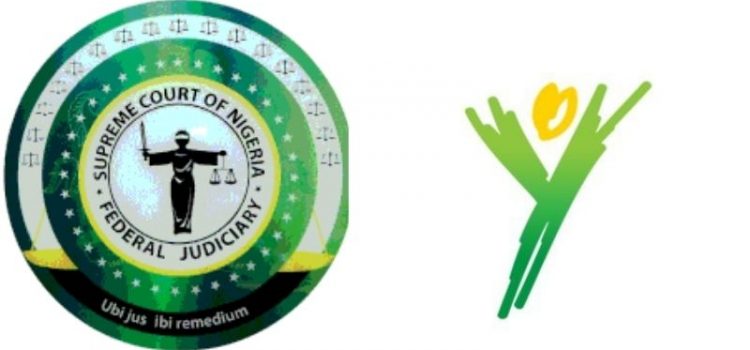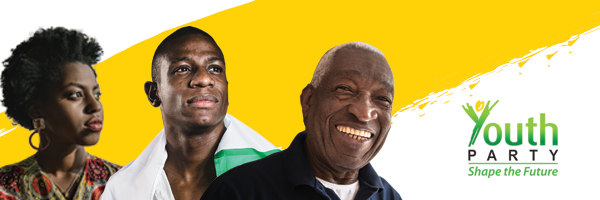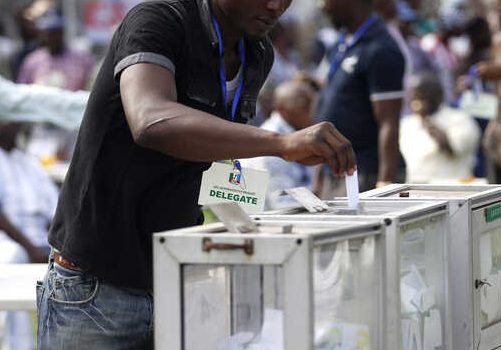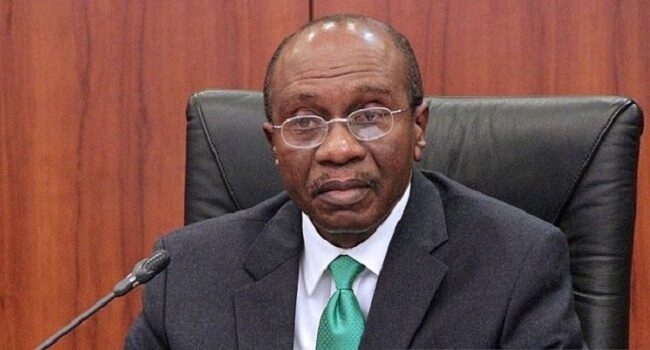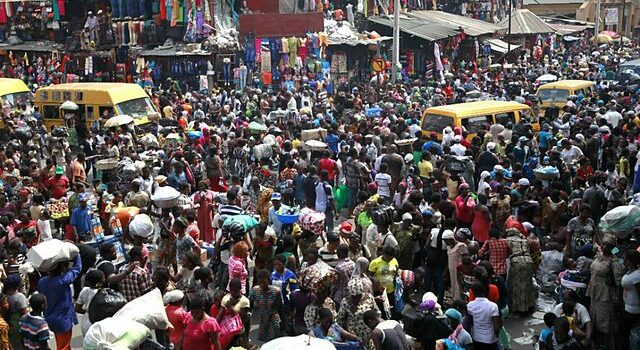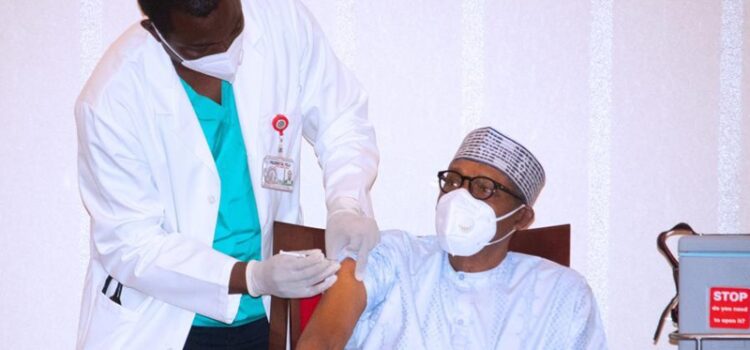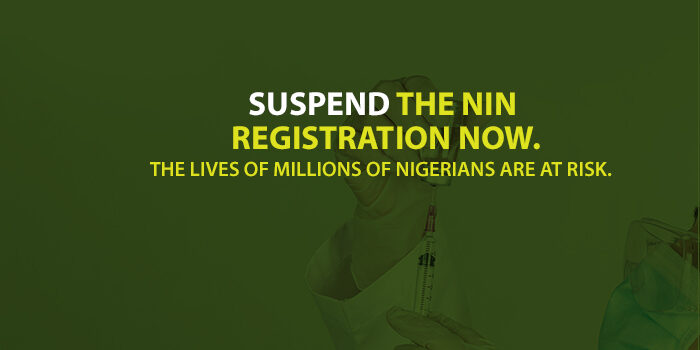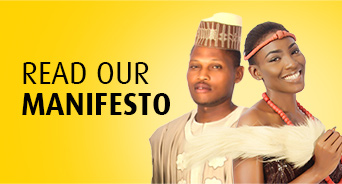Internal party democracy, also known as intra-party democracy, refers to the levels and methods of including party members in the decision making and deliberation within the party structure. It is primarily concerned with participatory and inclusive decision making. [1]
Thus, lack of internal democracy weakens party unity and is a threat to any country’s democracy. It also leads to chaos and often violence due to the resultant discontent. Nigerians cannot enjoy the dividends of democracy from any party that chooses candidates against internal democratic principles by discouraging competence, accountability and transparent leadership.
In Nigeria, there are laws and subsidiary regulations by the Independent National Electoral Commission (INEC) on internal party activities regarding party registration, candidate selection and leadership elections. For example, the INEC Regulations for the 2018 primary elections states that a 21 days’ notice of the primary election stating the type of primaries and the notice shall state the date, place and time of the primary elections. The said notice will be accompanied with necessary documents such as names of aspirants, members of the primary election panel, list of delegates (for indirect primaries), register of members (for direct primaries) amongst others.
Also, the Regulation stipulates that where a political party intends to postpone any scheduled primary election, the party shall inform INEC of the postponement not later than seven (7) days to the new date. The party is also required to clearly state the reasons for rescheduling, the new date and the venue.
The Nigerian 2018 Story
The recent conduct of parties primaries in Nigeria show clearly that a good number of Nigerian political parties do not practice internal democracy. Indeed, it can be concluded that a lot of them detest the concept. A serving Senator had this to say about internal democracy in the All Progressives Congress (APC):
“In APC, there are three ways by which you can emerge as a candidate: the first way is either you have someone at the Presidency who can call the people in NWC and tell the Chairman that your name should be included as a candidate. Number two, it is either you are in the favored book of a governor, who himself can use his own influence to compel the Chairman to remove somebody’s name. Number three is if you have the money to pay your way. Now, how can a party that has committed itself to change in Nigeria portrayed and purported itself as an offshoot of good governance behave this way”[i] [2]
In any political system that allows for internal democracy, party members know the rules, their rights, powers and obligations in selecting their leaders or candidates for the party. The opposite is usually the case where internal democracy is absent.
Internal party democracy cannot thrive in political parties where power is concentrated in one or few leaders, who impose their wishes and preferred candidates on members of the party. This gives room for discontent, resentment by party members and many times incompetent and unresponsive candidates, who see no reason to do the general will of the people.
We have witnessed cases where party members who were eligible to contest were denied the right to buy nomination forms. In other cases, some aspirants bought expensive nomination forms, met the necessary requirements, were screened out and were not given enough time to appeal the screening results.
Noteworthy is the idea of “consensus candidacy”, which allows for a few privileged party officials to decide who should be given the Party’s ticket, rather than a majority of the party members deciding who their representatives should be. The idea of a consensus candidate presupposes a situation where there is no opposition. However, Section 87 (6) of the Electoral Act of 2010, prescribes how a consensus candidate can emerge, where it clearly states that:
“Where there is only one aspirant in a political party for any of the elective positions mentioned in sub section (4)(a), (b), (c) and (d), the party shall convene a special convention or congress at a designated center on a specified date for the confirmation of such aspirant and the name of the aspirant shall be forwarded to the Commission as the candidate of the party”.
Stories abound where primary elections were postponed from day to day or annulled without prior notice to aspirants, members of the parties and INEC as required by law.[3] [4]In another instance, the primary election was postponed about three times and when it eventually held, it was annulled by the National Working Committee (NWC) of the party. Subsequently in a strange and unprecedented manner, the same National Chairman of the party reaffirmed the election that had been earlier annulled.[5] [6]
Whilst, the Independent National Electoral Commission (INEC) regulation requires that the names of delegates, venue and time for the primary election are meant to be forwarded to INEC and the aspirants, 21 days before the primary elections. Nonetheless, party chieftains hold on to these information for their ulterior motives. For example, Prof. Pat Utomi, a professor of political economics, stated that he did not know the venue of the primaries election, where he was an aspirant. He expressed his frustration in a letter to the APC national leadership thus:
“Until such a date when all aspirants must know who the delegates are in advance, and are able to have access to them to canvass for their votes as a minimum basis for free, fair and credible primary elections.” [7]
In another instance, a viral video shows the State Chairman of a party making frantic efforts to cajole the national organizing secretary of the party to change the names of winners of the party’s primary elections after their names had been publicly declared. The stories of brazen disregard for internal democracy are endless. [8]
The House of Representatives in former times had a debate on the issue and set up a committee to investigate the subject and make recommendation on it. According to the former speaker of House of Representatives, Honourable Yakubu Dogara; lack of internal democracy in political parties is a threat to democracy itself.[9]
In the same vein, The Socio-Economic Rights and Accountability Project (SERAP) has presented a petition requesting the Economic and Financial Crimes Commission (EFCC) and the Independent Corrupt Practices Commission (ICPC) to jointly investigate allegations of corruption during the recently held primaries.[10]
Youth Party’s cardinal ideology is the expansion of democratic space by adherence to the principles of internal democracy and open primaries (One Member One Vote – OMOV). The Party not only preaches but also practices and promotes the culture of internal democracy. Our party commenced its primary election process by publishing its primary election guidelines and providing a timetable for the purchase of forms, screening of candidates, primary elections and post-primary election appeal. [11] [12] [13]
In conclusion, internal party democracy is not premised on members participating in the decision-making process only, but also, political parties adopting an open system that will give party members opportunities to know the rules and contest in elections starting from the primaries.
We must move past the era of anointed candidates as flag bearers. The anointing should be in the will of the people.
[1] http://aceproject.org/electoral-advice/archive/questions/replies/110615365
[2] https://www.tribuneonlineng.com/172003/ Senator Shehu Sani, Sunday Tribune, 4th November, 2018, page 25
[3] https://www.dailytrust.com.ng/lagos-pdp-governorship-primary-postponed-for-the-4th-time.html
[4] https://punchng.com/apc-panel-cancels-lagos-governorship-primary-postpones-exercise/
[5] https://www.premiumtimesng.com/news/headlines/287603-apc-postpones-governorship-primaries-in-lagos-adamawa-others.html
[6] https://tvcnews.tv/2018/10/breaking-oshiomhole-affirms-lagos-governorship-primaries/
[7] https://www.premiumtimesng.com/regional/south-south-regional/287474-pat-utomi-cries-foul-demands- postponement-of-delta-apc-primaries.html
[8] https://drive.google.com/open?id=1zg68OB8sqloQc_0Hf4q0glUNFyuPnnVh
[9] https://www.dailytrust.com.ng/reps-to-probe-party-primaries.html
[10] https://twitter.com/serapnigeria/status/1061722509714866179?s=12
[11] https://youthpartyng.com/wp-content/uploads/2015/10/YP-Guidelines-for-Primaries-v0.4-PRINT-QUALITY.pdf
[12] https://guardian.ng/news/youth-party-announces-election-primaries/amp/?F=&__twitter_impression=true
[13] https://www.thisdaylive.com/index.php/2018/08/25/youth-party-election-primaries-to-hold-next-month/
